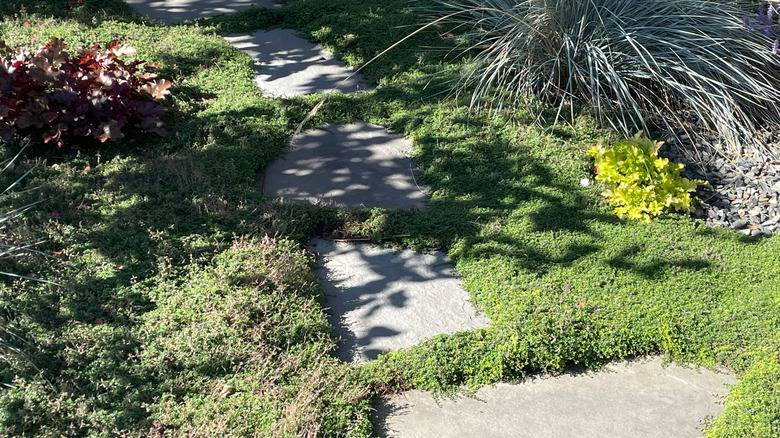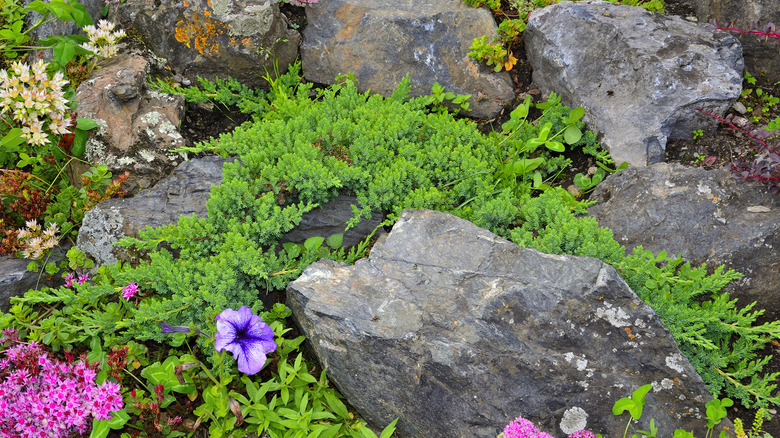How To Choose The Right Evergreen Ground Cover For Your Yard
The evergreen ground cover you choose determines whether you have healthy-looking plants with stunning year-round color or a sad, drab yard. While a wide variety of evergreen ground cover plants are available, not every plant is the right choice for every space. It's important to consider factors including your growing zone, soil conditions, and sun exposure when selecting your ground cover. You should also consider how drought tolerant you'll need the plants to be and whether you'll need to pick plants that aren't too vulnerable to being nibbled by deer.
It's important to be aware of your USDA growing zone any time you're picking out a perennial plant. Your growing zone is based on the average lowest winter temperature in your area and can help you choose plants that can handle your climate's winters. When looking for an evergreen ground cover, you want to pick plants that are not only hardy in your zone but can thrive there and remain green year-round. For example, while perennial peanuts (Arachis glabrata) may be a perfect evergreen ground cover for parts of Florida that don't get frost, the plants lose their leaves during winter in cooler areas, and they aren't perennial below zone 8. This makes them a poor choice for growers in colder regions. Fortunately, gardeners in areas with cold winters have plenty of other options. Surprisingly, these cold-hardy evergreens can even include succulents, like the charming hens and chicks (Sempervivum tectorum), which are hardy down to zone 3.
Pick ground covers that can thrive in your location
Knowing the soil conditions in your yard can help guide your selection of ground covers. It's never a bad idea to do a DIY soil test or even send out your soil to be tested professionally. This will help ensure you pick an appropriate ground cover that will thrive in your soil. Creeping juniper (Juniperus horizontalis), for example, is an ideal evergreen ground cover in many yards with well-draining soil, but it's unlikely to do well in boggy, clay-heavy locations. In some cases, you may be able to amend your soil, but in other situations, it's simplest just to choose different plants.
If you live in a region where droughts are common, you may need to prioritize drought tolerance when looking for a good evergreen ground cover for your yard. Depending on where you live (and whether your yard is fenced), you may also want to opt for a ground cover plant that deer won't touch. Luckily, ground cover plants like creeping thyme (Thymus serpyllum), which is evergreen in many locations, and creeping phlox (Phlox subulata), which is semi-evergreen, are not only drought tolerant but deer resistant, too.
Lastly, sun exposure is an essential factor to consider when picking the right ground cover for your yard. While creeping juniper is unlikely to thrive in the shade, other evergreen ground covers, like redwood ivy (Vancouveria planipetala), are perfect for shady locales. Keep in mind that your yard's sun exposure may vary throughout the year. Be sure to pick plants that can handle both summer and winter conditions in your yard.

